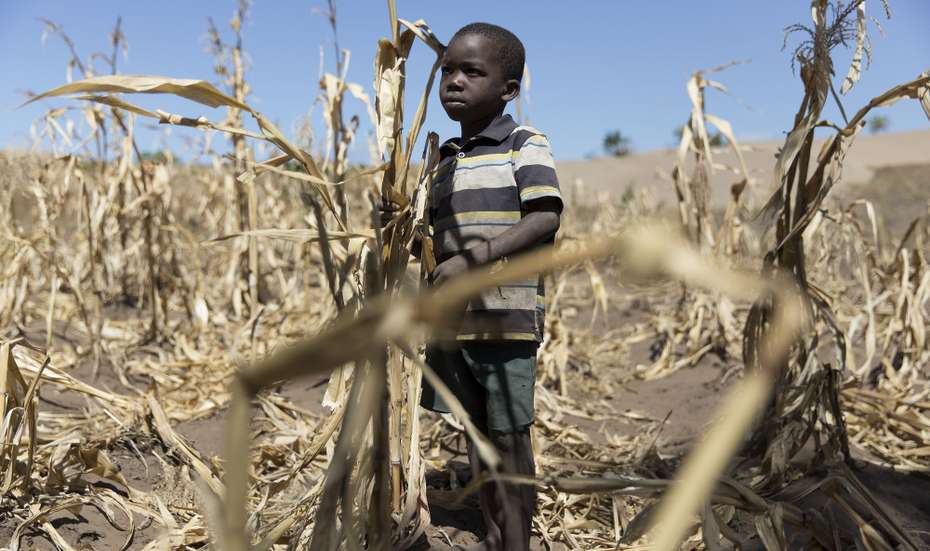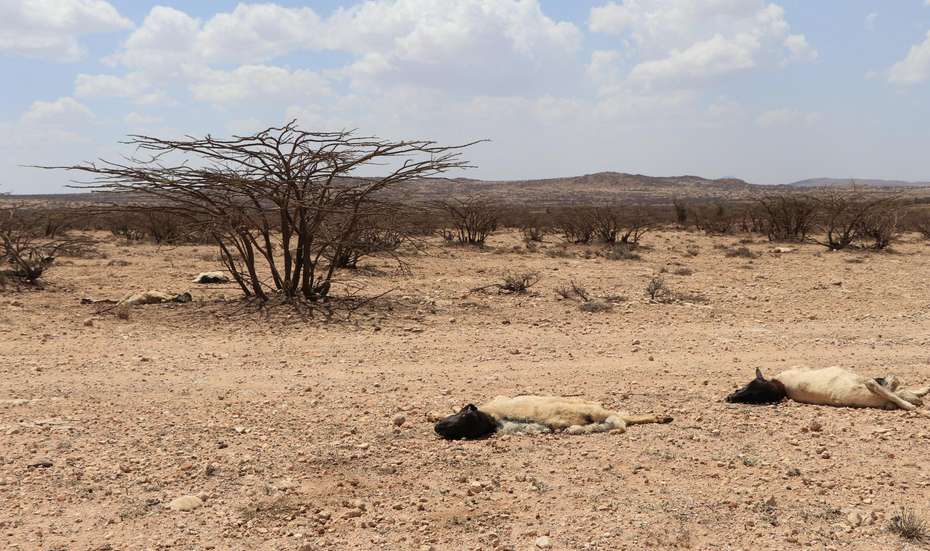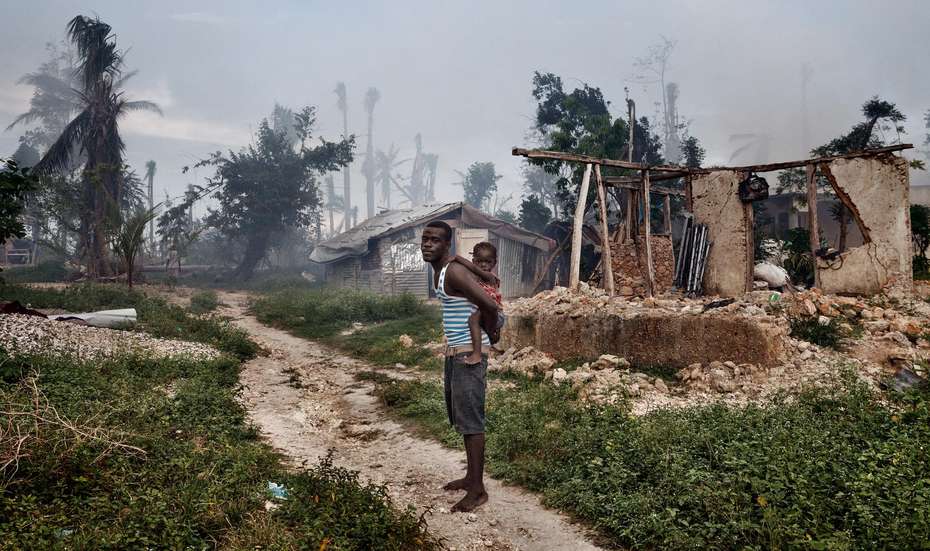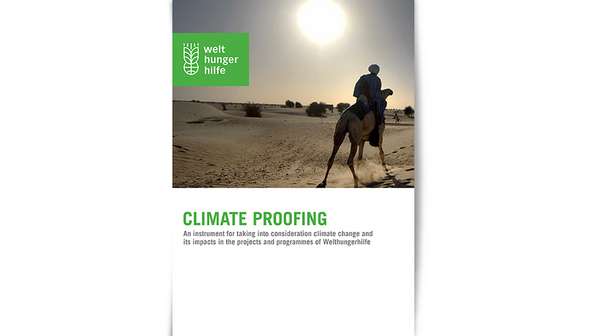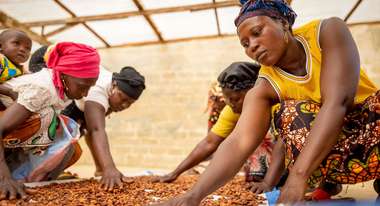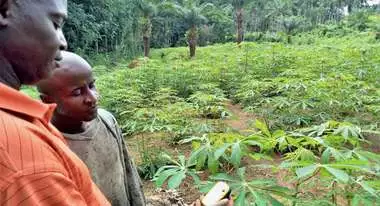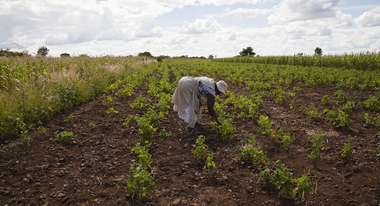This concept paper provides more informations about climate change.
COP23: 6 Reasons why Welthungerhilfe is at the Conference
The effects of climate change are primary causes of hunger and poverty throughout the world. Solutions for climate change must be found in order to reach the goal of Zero Hunger by 2030.
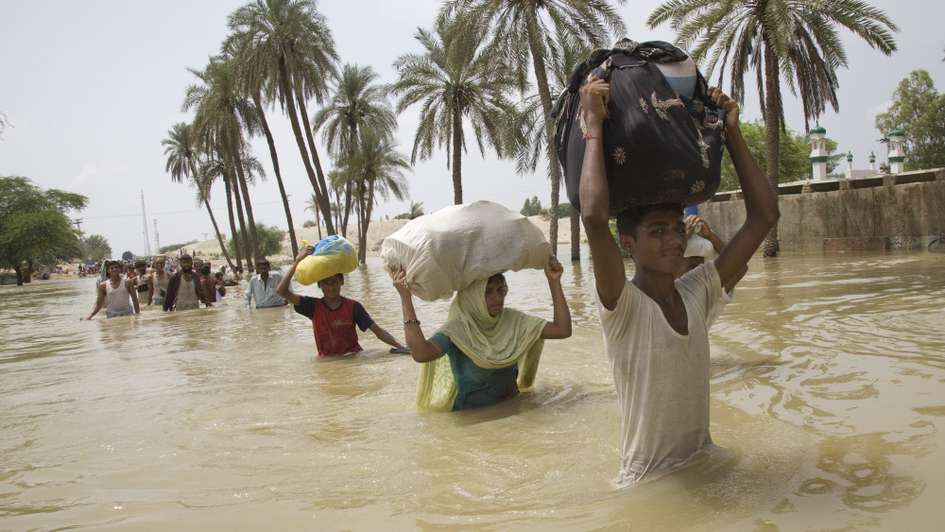
Experts and decision-makers are discussing possible solutions at the COP23 climate change conference in Bonn. For Welthungerhilfe, there are at least six good reasons to address the link between climate change and food security or hunger and to participate in COP23.
1. Climate Change Primarily Affects People Stricken by Poverty and Hunger
Throughout the world, extreme weather events are affecting the poorest people the most because they have hardly any of the money, knowledge or supplies necessary for preventing and responding to emergencies. Approximately 80% of those suffering hunger are farmers, herders, fishers, hunters or gatherers and/or belong to indigenous populations. In addition to being calorically undernourished, they also suffer from a chronic lack of essential micronutrients. Women and children are often the most vulnerable. Children who grow up malnourished continue to suffer the consequences of malnutrition in adulthood.
2. Extreme Weather Threatens Agriculture
A temperature increase of only one or two degrees Celsius noticeably intensifies dry seasons in the tropics and subtropics. Arid regions in particular can no longer be cultivated. Another challenge is presented by variable precipitation and an increase in extreme weather events such as floods. Since most developing countries are located in the tropics and subtropics, they are disproportionately affected by the effects of climate change. Average and projected crop yields have decreased significantly in Africa and in the alpine regions of Asia and Latin America. Left unchecked, climate change therefore presents a threat to food security and to the security of the population as a whole.
3. Water Scarcity Shrinks Harvests
In many regions, water is becoming more scarce. This is causing not only the people but also their crop yields to suffer. Agricultural production and efficiency therefore increasingly depend on water-saving and water-storing technologies such as terrace construction, rainwater collection, adapted irrigation systems and the rehabilitation of parched land. Farmers and smallholders need targeted support with such procedures, since they cannot easily raise the necessary capital themselves.
4. Climate Change Requires new Crisis Prevention Solutions and Early Warning Systems
Since the amount of extreme weather events will increase, investments must be made in early warning systems, improved and decentralised disaster prevention, and comprehensive risk management. These systems must be expanded on a national level, i.e. by
- establishing or increasing stockpiles of strategic food reserves;
- expanding and securing rural infrastructure;
- adapting space, settlement and land use planning; and
- building technologically-adapted structures, e.g. for flood protection.
Comprehensive risk management also involves offering risk insurance. This includes insurance against crop failures on the household level as well as pooled insurance approaches in which risks are spread across multiple states. Food security is unattainable without disaster and crisis prevention.
5. Disasters Caused by Extreme Weather Events Damage the Economy
Disasters caused by extreme weather events are already responsible for annual losses to the world economy totalling more than USD 300 billion. The OECD has determined that, beginning in 2020, economic power (GDP) can be expected to decrease by 3.3% annually due to increases in extreme weather events. This especially affects poor countries, which are already extremely vulnerable to external shocks. Poor countries now need to spend yearly sums of USD 30 billion due to disasters. This amounts to one third of the amount spent on development cooperation (ODA) worldwide. The survival of smallholders and poor households with low incomes is especially threatened.
6. Climate Change Causes Poverty and Inequality
Climate change and war increases inequality. Inequality is therefore a result of power disparities, which, in turn, lead to food disparities. A recently-published study of the World Bank arrived at the conclusion that these disasters plunge an additional 26 million people per year into poverty. Effects on lives and living environments as well as possessions and budgets are distributed unequally throughout the world.
The Welthungerhilfe Response to the Effects of Climate Change in Concrete Terms
For Welthungerhilfe, four issues are of particular importance. The most important instrument of climate adaptation analysis is already available during the project planning phase. Local measures are supported to increase particularly vulnerable rural residents’ resilience to the effects of climate change. In this way, for example, the Ethiopian region of Ergo is successfully defying a drought.
Finally, Welthungerhilfe is supporting disaster risk reduction and disaster prevention. Depending on the region, this may include creating risk analyses and risk reduction plans, establishing local early warning systems and rescue organisations, and installing protective measures. In Haiti, which is regularly struck by hurricanes, Welthungerhilfe is helping to establish and train local civil protection services.
On the political level, Welthungerhilfe is promoting the combination of early warning systems with early action. To this end, a forecast-based mechanism must be created with which money for measures to significantly reduce the effects of shocks on the population can already be allocated before a disaster strikes. This can be done with direct financing or index-based insurance systems. The inclusion of civil society in national climate change protection programmes should also be promoted.
Welthungerhilfe at COP23
(All events are only open to accredited conference participants.)
November 6 - 17, 2017
At an information booth, Welthungerhilfe, in conjunction with other organisations such as its Alliance2015 partner Helvetas, is presenting new humanitarian approaches to respond to climate change, e.g. forecast-based financing or early warning systems.
November 8, 2017, 6:00 PM
Bärbel Dieckmann, Welthungerhilfe president, in discussion at the climate change dialogue of the BMZ (Federal Ministry of Economic Cooperation and Development): “Is it possible to flee from climate change?” A round table discussion with experts and celebrities about climate change policy and corresponding BMZ activities.
November 13, 2017, 11:30 AM to 1:00 PM
Professional event by Welthungerhilfe, START Network and FAN: “Risk, Informed Early Warning & Early Action for less L&D in Drought Contexts and Forest Fires.“ Speakers:
- Emily Montier (Project Manager, START Network)
- Haja Rakotonirina (Project Coordinator, Welthungerhilfe Madagascar)
- Matthias Amling (Crises Anticipation and Crises Monitoring Advisor, Welthungerhilfe)
- Natalia Calderon (Executive Director, FAN)
- Moderation: Michael Kühn (Welthungerhilfe)
November 14, 2017, 6:00 PM
An evening on climate change by Brot für die Welt, Misereor and Welthungerhilfe. Representatives of the ecology committee meet climate change witnesses from partner countries.





